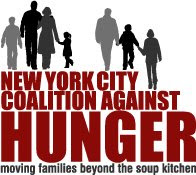25 million American children are obese or at risk of becoming obese, according to data presented at the Senate Hearing on Childhood Obesity on July 16. The Senate heard testimony from medical professionals and policymakers, who emphasized the strong connection between poverty and childhood obesity, while stressing the widespread consequences of inaction in response to what Senator Chris Dodd called a “medical emergency.”
Jeff Levi, Ph.D, Executive Director of Trust for America’s Health offered testimony based on National Survey on Children’s Health reports that children of more affluent households are less likely to be overweight or obese. To illustrate this in concrete terms, in 2003, 22.4% of children below 100% of the poverty threshold were overweight, while only 9.1 percent of children at 400% of the poverty threshold were overweight.
A major reason for the disproportionate rates of obesity is access to affordable and nutritious food. Bruce Lesley, President of First Focus, a child advocacy group cited a Food Trust report showing that “people who live in lower-income areas without access to supermarkets appear to suffer from diet-related deaths at a higher rate than that experienced by the population as a whole.”
Obesity is a health issue with wide-ranging effects on children’s health and well-being. Childhood obesity is associated with depression, very early diagnoses of type 2 diabetes, low school performance, and a low quality of life, as reported in medical testimony by Dr. Francine Kaufman former National President of the American Diabetes Association, and Dr. Margaret Grey, Dean of the Yale School of Nursing. Annual hospital costs associated with obese children and youth have more than tripled since the 1980s, with obesity-related medical costs expected to rise as the current generation ages.
The lack of emphasis on prevention has led to a snowballing crisis which demands immediate reform. Levi argued that the source of the problem is largely environmental and also the result of poor policy choices. For example, school reform initiatives in recent years, namely No Child Left Behind, have effectively excised physical education funding and nutrition requirements from many school curricula and food programs and have left children unequipped to make healthy choices.
However, while immediate action is necessary, witnesses also emphasized that it would take wide-ranging and comprehensive solutions in order to counteract these problems. All testifying witnesses urged that government must acknowledge the profound effect rising childhood obesity rates will have on all levels of public life.
Kaufman illustrated the scope of childhood obesity problem when recounting her struggle to treat a 13-year-patient diagnosed with type 2 diabetes. Said Kaufman, “for my patient to do well, the world in which she lived would have to change. Her neighborhood, her school, the healthcare system that focuses more on treatment than prevention- our country- would have to transform so that it promotes and supports healthy lifestyle habits and make the healthy choices the easy choices- the accessible and affordable choices.”
Lesley called on Congress to increase physical activity requirements in schools, support new obesity prevention initiatives, and improve medical care and nutrition programs for all children, which includes extending State Children’s Health Insurance Program (SCHIP) funds to cover obesity-related expenses. He further urged Congress to support measures that would insure the safety of children within their neighborhoods and near their schools, making it safer for children to increase their physical activity.

2 comments:
Due to the wealth of information provided in your blog/website, we have added a link to your organization from one of our websites which has like concerns about hunger & issues of poverty.
Thanks,
Cliff
Another cause of childhood obesity is the lack of safe places to play.
There's a free workshop on building playgrounds coming to NYC Aug. 13 called WE Play!. More information is available at kaboom.org/weplay.
Post a Comment